Soft Launching Your Rebrand Tonite, Queen? 👀
Deconstructing Actualizations of The Imagined Self in a Post-Girlhood Reality: A Comparative Analysis
Dearest Mirror on the Wall,
Am I the fairest? Am I destined for greatness? Is there more to life than this, the sleepy slur of Sundays or the Quiet blooming of the moon? I don't trust this place. And it would not be the First time I am betrayed by this Body. I would like to hear your side for once. To speak to her. To know if her truth is as True as ours, if her colors are as crisp. I know she dreamt of me, sometimes jolted out of sleep to avoid my gaze. Tell her I want to see her. There is nothing to be ashamed of. tell her it won't Hurt this time.
cinncerely,
The Hauntlings of the Void
Some housekeeping - I didn't get to finish this in time to share last week, so to even things out, I'll be sharing two posts this week! After that, I hope to get back on schedule. thank you for being patient with me as i try to also be patient with myself. 💛💛💛
This post is another long one (sorry!!), this time about self love! I know my title seems like word salad; it's meant to be silly / tongue in cheek (I just think faux-academic titles are really funny 😅). Anyway, ahead is an essay exploring my Self Development and examining how I turned out in comparison to who I hoped to be. Later this week, I'll be sharing some more in depth words on Femininity and how it informs my life experience and identity. Stay tuned!🥀✨
I'm very grateful to have this platform to speak in more depth about my perceptions of my self and the society we live in, and would like to thank you for reading.
PS - this post features several crossover portraits of myself at various ages, inspired by artist Chino Otsuka. I was assigned eldest daughter at birth.
A documented phenomenon, “Eldest Daughter Syndrome” has become a bit of a trope, almost a cliche in online circles (and maybe the real world, too). As is often the case, my status as an eldest daughter was perhaps one of the earliest things to define me. Before I even really had a full sense of self, it was impressed upon me that as a Big Sister, I was accountable to others and therefore needed to be responsible and bear in mind that my actions or choices could influence my siblings’ behavior (making it imperative that I set a “good example” at all times). Over the years, my role expanded to include defending my siblings from my parents, mediating spats, and dispensing money or advice as needed. It was only after my siblings started having me sign their school permission slips after I turned eighteen (the gap between me and the youngest is nine years) that I realized I had become a third parent by accident. I didn’t mind; I took pride in this, considered myself good at it, even. I loved them, my siblings. I loved being needed, too, admittedly.
But secretly I also longed for my own big sister, an impossible wish. I could never have one. As consolation, I’d instead imagine Older Me from the future giving Present Me a hug and words of reassurance, and in desperate moments this reverie managed to soothe me, filling my heart with a little boost of hope and temporary relief of sorrow.
Diaries have kept in me in dialogue with the “inner child” everyone insists you need to heal (though mine, I joke, is more of an outer child). When I reread them, my diaries elucidate the troubles that plagued my adolescence and young adulthood the most. And I kept so many diaries! I had a dream journal, a quotes journal, a list making journal, a scrapbook, a brainstorming journal and a letter journal (where I wrote letters to various people in my life—all of them addressed as “Dear You” for the sake of anonymity—and now I can’t recognize who half the letters were intended for). I had notebooks for outlining my stories (I was always working on a “novel”) and to top it all off, I had a daily blog where I shared live updates online about the happenings of my day to day. Diaries and journals played a critical role in my adolescence. Within them, I vented, I dreamed, I pondered. My journals encompassed the breadth of my emotions and understanding of the world. Every page and every post was a micro self-portrait that, when collectively stitched together, illustrated the budding foundations of a still-malleable identity, alongside my desperate pleas to my Older Self to hopefully be better off, maybe even happy, in ways I couldn’t fathom at the time.
As ripe as youth is with potential for self-discovery, how are you even supposed to know who you are? What is the process for building an identity from scratch? No one tells you. Is it that you’re just a product of everything that’s happened to you—a sentient bundle of memories and reactions collected in a body? I struggled with this. Back then, I was too broke to express myself externally (via clothes, style, hair or makeup), inexperienced in dating and relationships, uncertain of my sexual orientation, unable to envision a viable career (and subsequently terrified of the future), and grappling with depression and suicidal ideation due to the volatility of my life at home—I was not a girl: I was a walking existential crisis.
Though I didn’t know fully who I was or was meant to be, I could at least name what I aspired to; teenage me had hopes and dreams on the days when she didn’t have despair, and she wrote them down.
There are two prevailing theories on how the framework of one’s self-concept1 is built. One theory proposes we come to understand who we are through the interplay of our “ideal self,” our “self image,” and our self esteem. The second theory suggests that individuals tend to define themselves both in terms of their roles (sister, artist, etc)—the social identity—and their personal identity, which is comprised of recognized behaviors and traits.
I could always tell you who I was in relation to other people because that had been my original frame of reference: I’m an Older Sister. And later, I could tell anyone with unwavering confidence, I’m a Writer. I could name my ethnicity—I’m a Vincentian—but I always felt like a disclaimer was necessary there: Well no, I wasn’t born there, my parents were, and I haven’t been there before but I’d like to one day… and in the process I’d feel like a fraud so I couldn’t exactly lead with that. Still, my social identities were pretty clear.
My personal identity, however, felt hazy. The incongruity between how I saw myself and how others saw me was disarming. For example, I got called shy a lot. But I didn’t really identify as quiet or shy—sure, I wasn’t as loud or carefree as other people, but I felt outgoing; I was observant and sociable and talkative when approached directly. But I couldn’t get people to stop sticking that label onto me. Similarly, my parents kept calling me lazy because they felt I didn’t do enough housework. But I didn’t consider myself lazy at all—I just didn’t value the things they wanted me to care about. But the frequency of these incidents still disrupted my sense of self.
While my personal identity and self-image were incomplete—which plummeted my self esteem in lots of ways—I had a coherent vision of my ideal self. Like I said, I dreamt of her often. Prayed to her, even. Knowing that she was out there, me but wiser and more composed and less restricted and hopefully prettier and hopefully cooler and hopefully loved…
And guess what? Technically, the Me of Today is the Older Self I wished for back then. These days, when I evaluate my life or try to measure my “success,” I find myself wondering if my Younger Self would like me if she could see me now. She’d probably find it incredulous that I have a “boring office job,” the thought of which used to give me legit anxiety attacks in high school. Even wilder than having the boring office job? I genuinely really like it! My Younger Self would love my wardrobe. She would be relieved that I figured out the sexuality thing2 and pleased to know love had not skipped over me completely in this lifetime. Baby Me would be disappointed I wasn’t a famous writer, Teen Me would admire my makeup skills, and Young Adult Me would be ecstatic to know that I’d finally visited St. Vincent and finalized my dual citizenship.
Just for fun, I’d like to share some of the things I hoped for or wondered or believed when I was younger and play a quick game of Expectations vs Reality. To do this, I’ve gathered a bunch of screenshots from my Tumblr and grouped them by theme. There are five total: Beauty, Sexuality, Style, Career, and Self.
Beauty
Let’s set the scene. It’s April 2014. I’m a nineteen year old who’s just dropped out of my dream school because I simply cannot afford the tuition at a private out of state college, I’ve just gotten my second ever Real Job at my favorite stationery store—located in SoHo (which makes me kinda cool, doesn’t it?)—and I’m makeup shopping maybe after work or during a lunch break and daydreaming about ways to be prettier. I have no idea what I’m doing. I’m also still learning to take care of my hair after frying it with heat damage.
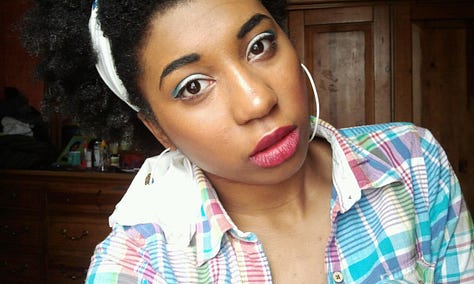
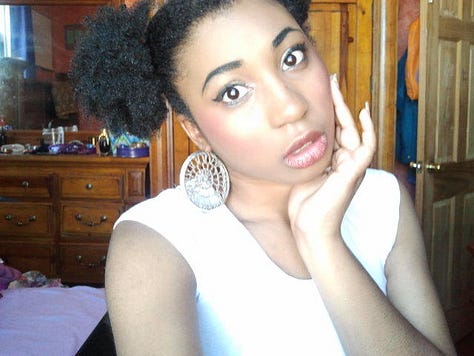
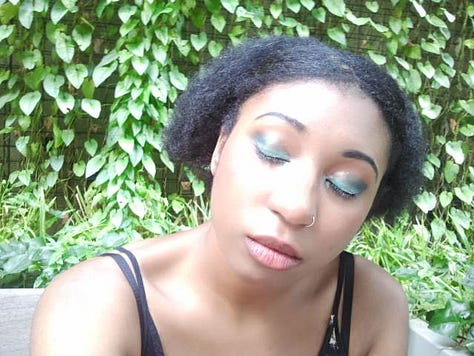
Ten years later, and I can report that my makeup skills have improved by a lot!! I actually never forgot the advice of that MAC employee; I don’t think I ever filled my brows with a black pencil ever again. 😅
My younger self would be so impressed by the transformation in my skills. When I turned 26, I took the time during lockdown to buy new palettes, brushes, and really practice. I had aspirations of documenting my makeup journey and becoming an influencer at the time. I unfortunately wasn’t diligent enough about posting to TikTok and IG so that never happened. But the practice made a world of difference.
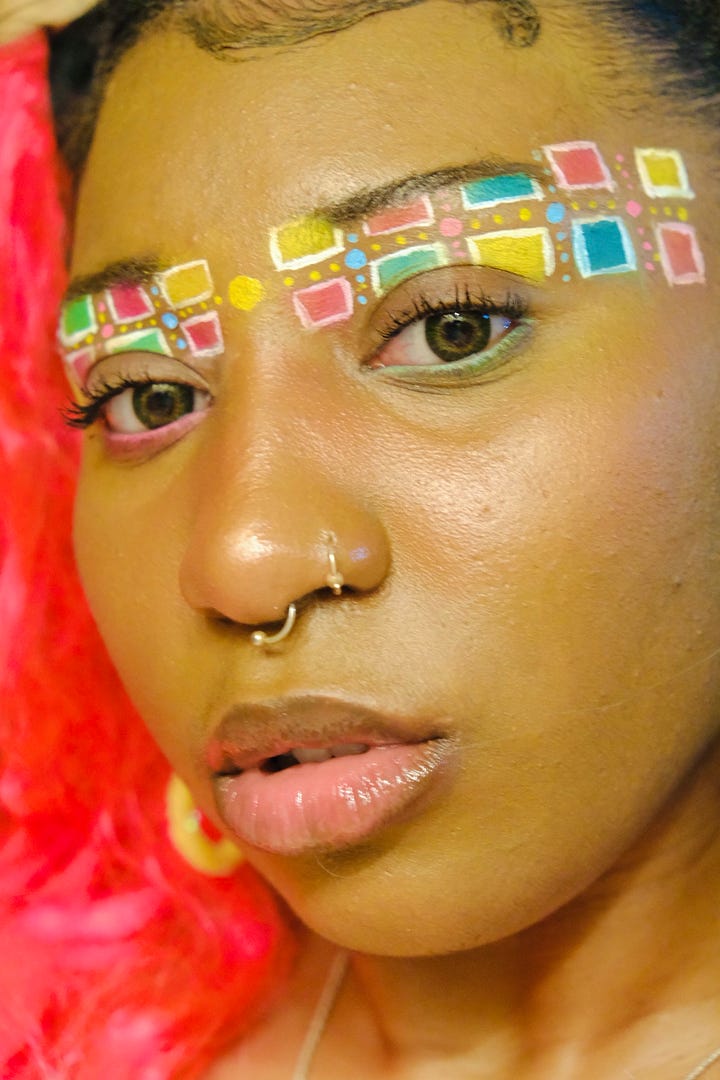
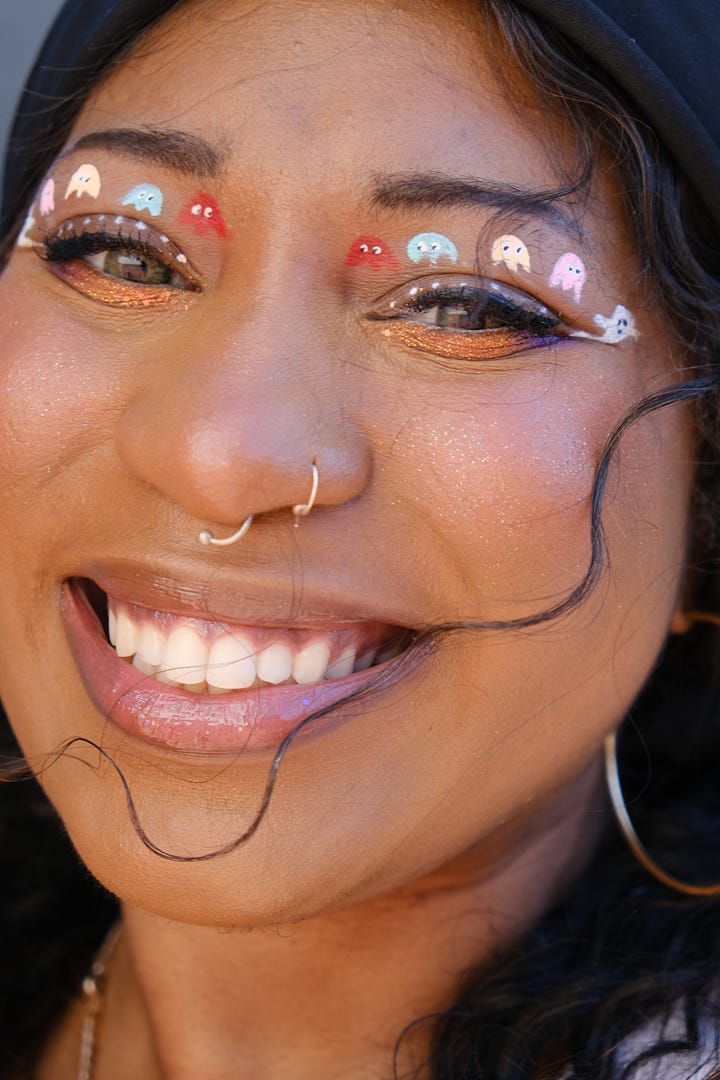
But of course, my metrics for beauty were beyond just my face—I fussed over my figure, too. I was never too happy with it.
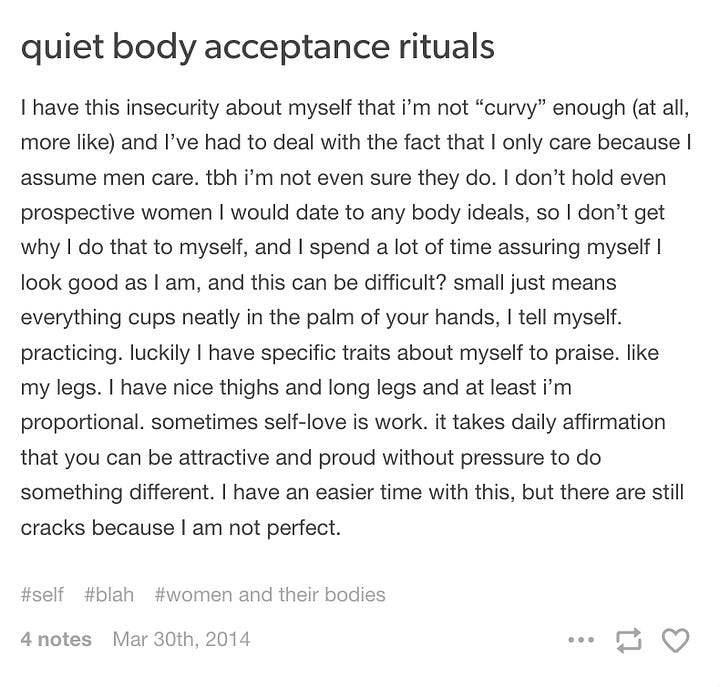
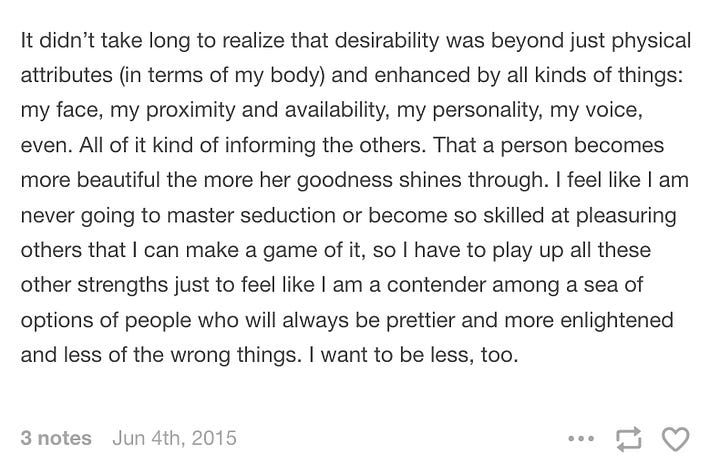
To my younger self, I’d tell her that body-image wise, things changed but kinda stayed the same. I put on weight as I got older, which is natural. In turn, I became more visibly “curvy” and closer to the “womanly” body I envied at the time. But, I am now average in size and no longer the XS-S I once was. I envy the ease with which I used to shop. And I miss the way all my clothes used to fit! So I still look in the mirror and feel very unhappy, some days. However, I’ve learned that people who want to touch your body don’t care about the little details; men in particular are just happy to be there and in fact they tend to think you’re insane for complaining about your body at all. I don’t care so much about their reassurance, I’ve learned. It doesn’t soothe me. So anyway, I’m not much better off in this department; I just have new complaints. I don’t know if Younger Me would really get it though. She’d probably tell me that I still look nice.
Sexuality
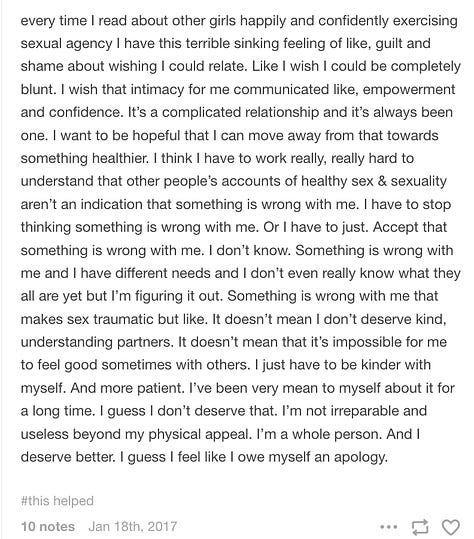
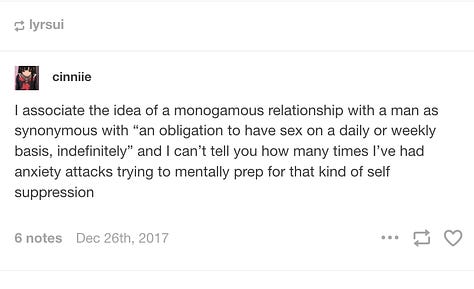
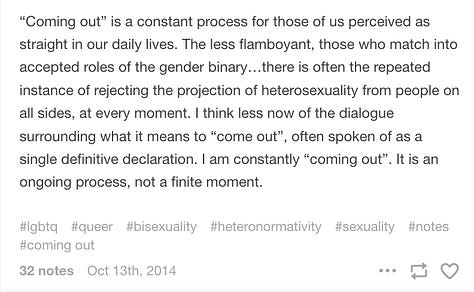
I wasn’t sure about my sexuality for a long time. I realized I was bisexual around age thirteen. I was in middle school, and a lot of other girls my age were coming out as bi. It was almost like a trend. (This is just how these things go—adults now freak out about kids thinking about their sexuality and worry that someone is grooming them or that they’re confused. But I wonder if they don’t remember being those ages, and how they felt in their bodies at the time, and what they knew of their desires, and how they moved through the world.) Naturally, I wondered if I was bisexual too. Would I kiss a girl? Hm, I think so. Yes. Would I have a sex with a girl? Yeah, that seems okay. Was I attracted to girls? They’re very pretty. Could I be in a relationship with a girl? I think I would like that. And I already knew I liked boys, because I had crushes. So this initial realization was not the agonizing thing.
What made it agonizing later was that my attraction to men stopped feeling so obvious. I gave myself anxiety attacks thinking about the idea of sex being expected of me in a relationship. I questioned if I was attracted to men at all given how fearful of them I could be. If I factored in what sort of pornography I liked watching in private, that I exclusively watched lesbian content and was bored by straight content felt damning.
Later I discovered the romantic/sexual split attraction model and thought, Okay so I’m a biromantic homosexual? But that sounded so stupid to say out loud in the Real World so it didn’t make me feel much better; it seemed easier to just say bi if anyone asked. I started obsessively worrying about all this around age sixteen even though I didn’t become sexually active until age twenty, and once I did I was promiscuous for a while as I tried to see if maybe attraction to men was more of an acquired taste.
It did not help that when I finally went on my first date with a girl (at age 23, days after my grandmother’s passing, because the day we’d initially agreed to meet was the day she died) it was the opposite of everything I’d been used to. The girl I’d met on Tinder was very tall, very cute, and the sexual tension was instant. We tried to be coy about it, but in the end I went home with her, and thoroughly enjoyed myself without any doubts or caveats.
In the end, I realized how much difference it made to be in love with a man before I slept with him. To not just tolerate him or think he was “kinda cute” but to really, truly be into him. This had not been obvious to me at all. I didn’t know I was supposed to be enjoying sex or that my pleasure even mattered. When this understanding shifted and I was no longer just dissociating through it all the time, I realized I could be okay. And I realized I wasn’t a lesbian.
To my younger self, I wish I could urge her to be patient and to be more compassionate with herself.
Career
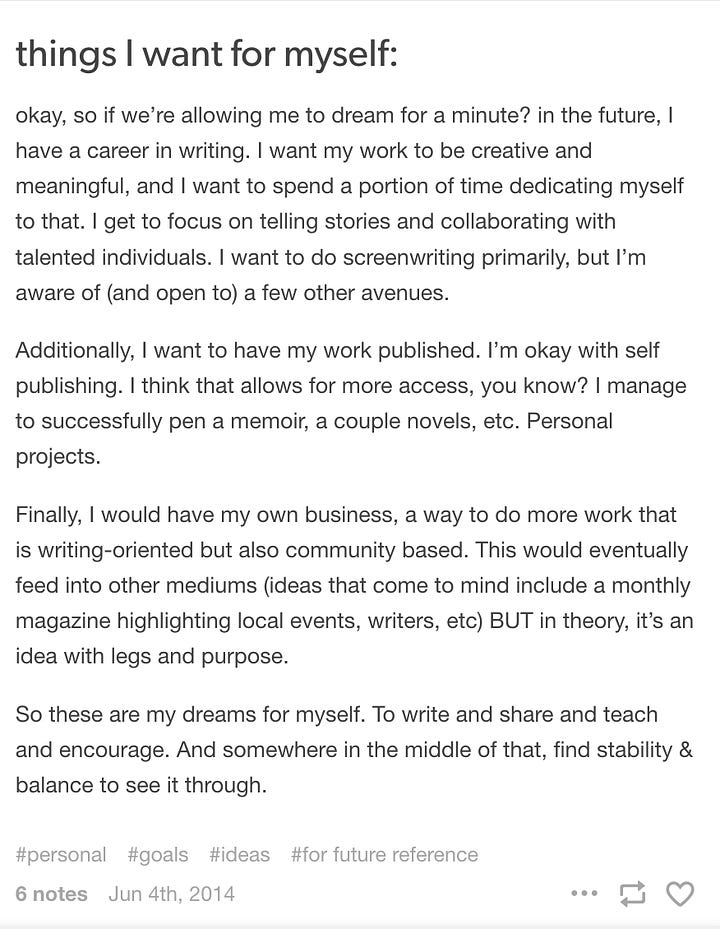
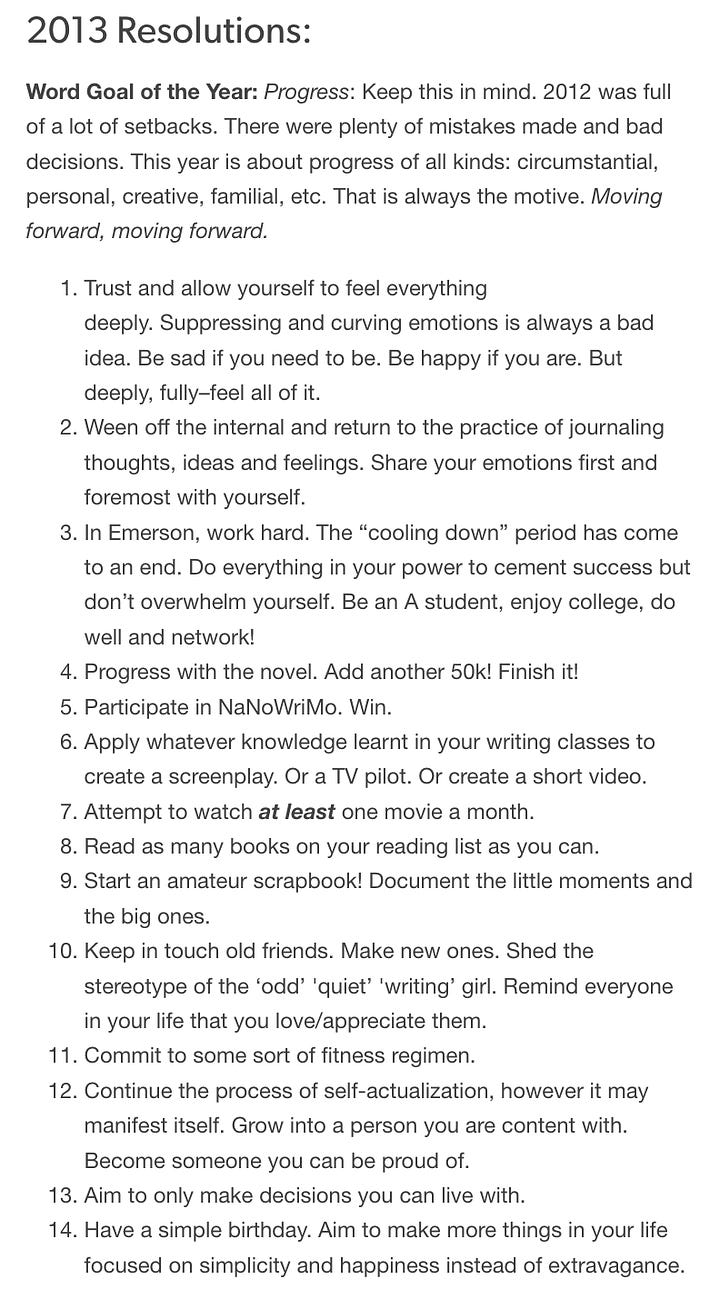
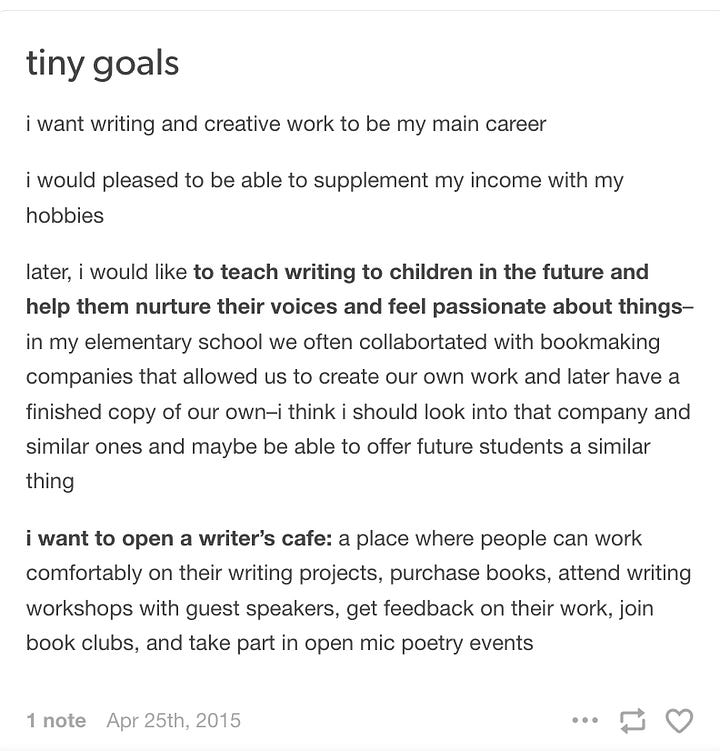
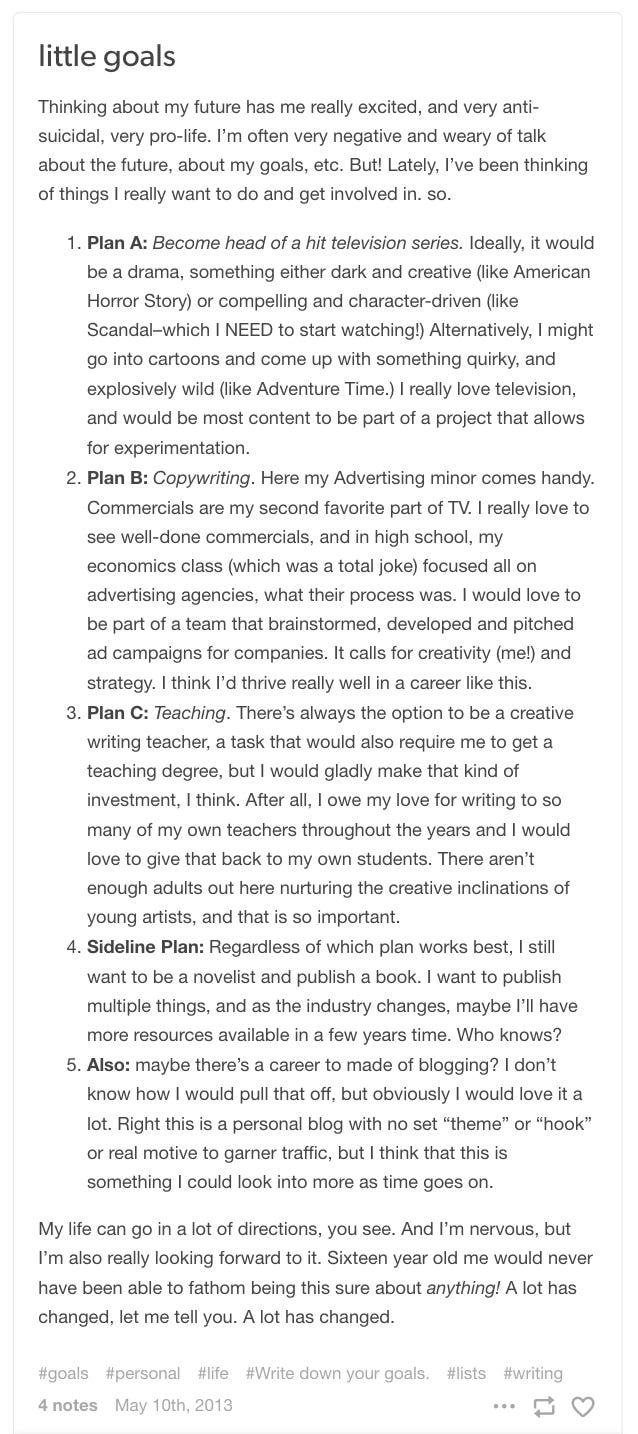
Seeing the sort of things I was saying I wanted to do in my late teens / early twenties was illuminating. I thought that some of the goals I’d set in recent years were new, but this exercise made me realize I’ve been aspiring to the same sort of career for years: wanting to do more community-oriented literary initiatives, wanting to work with children.
Thankfully, I’ve made some strides with this: last year and the year before I held a children’s collage workshop at the library. I’ve begun volunteering at orgs that help kids learn to read or develop new skills as writers. I did self publish a book. Writing technically is my main career, since I work on grants for a living at the moment, which was not at all on my radar on the few occasions I tried to be proactive about potential jobs. I haven’t become a traditionally published author but I still write and I’ve been published here and there. I completed a poetry manuscript. I still want to open a business. I graduated too, later than intended and not in the major I thought I’d pursue, but I did it.
Anyway, to my younger self I would say: we’re making strides. We’ll have to check in again later.
Style
I didn’t cultivate a coherent and identifiable sense of style until my mid-twenties. You can see the transformation in this essay, just from observing the difference in my birthday looks over the years. From age 26 onwards, I decide to fully commit to being colorful and sparkly. Between ages 22 to 25, I stumble into style—it takes me following Influencers on IG and subscribing to certain hashtags to get a truer grasp of not only what I like, but what looks good on me. It takes some trial and error to figure out how to emulate the look I’m going for. It takes some years to accumulate an arsenal of clothing where everything can easily mix and match. It takes me a while to cultivate the makeup skills to elevate my outfits further. It takes money to have cooler hair colors and custom styling. But I do get there.
I wasn’t always the hyper-femme I am today. As a teenager, I thought about androgyny and experimented with that. I’m not sure at what age I decided to lean heavy into being girly. I didn’t own a pair of sneakers until very recently. I have phased pants out of my wardrobe (though I still wear shorts, in the summer) though that might have originated out of laziness (there’s nothing Lazier than a dress when it comes to clothes).
I intend to dive more into this subject in my next post, as I think there’s something worth inspecting about femininity as a Choice in fashion and beauty, but I feel proud of the way that my aesthetics and tastes have developed over the years. Beauty and style have become more natural and accessible to me. I do think my younger self would approve.
Self
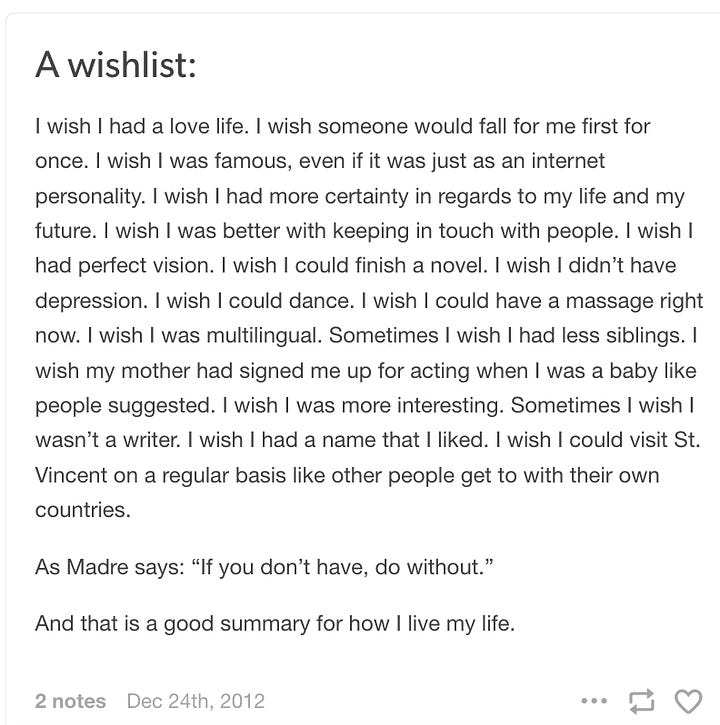
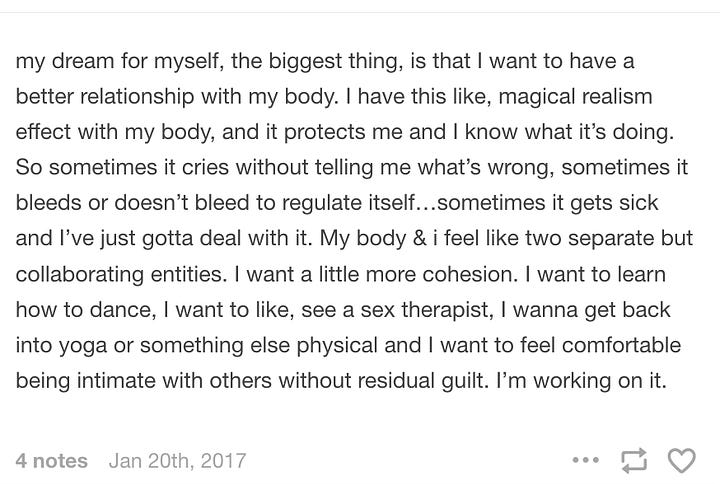
While looking through my old blog, it was obvious to me that I was a very sad girl, but I was also quite self aware. I could name what was wrong with me. I knew what it might take to feel better—it was simply out of reach.
There are countless posts just like these, even more anxiously questioning my desirability and my worthiness of love. I questioned what it would look like, to be content. To like myself.
I have since learned that some of the things I used to poetically describe were actually symptoms. Like, I talked a lot about feeling like my body was separate from Me, but I know now that I’m just dissociative.
And my wishlist? A lot of those wishes didn’t come true. Almost none of them. And yet, so much has changed for the better in spite of all that. And there’s still time for the wishes to actualize, of course; time hasn’t run out.
To my younger self, I would hug her. I would take her out to eat and we would gossip over delicious food and drinks. I could show her around the city we grew up in and point out the places that have changed, tell her which restaurants become our favorites, take her shopping afterwards, name the neighborhoods where we fall in love or find enlightenment. I could tell her. I could tell her everything, apologize to her, I could boost her confidence. I could tell her we will be okay.
“Self-concept is an overarching idea we have about who we are—physically, emotionally, socially, spiritually, and in terms of any other aspects that make up who we are. We form and regulate our self-concept as we grow, based on the knowledge we have about ourselves. It is multidimensional, as you may have a very different idea of who you are in terms of your physical body, and who you are in terms of your spirit or soul.” — What is Self-Concept Theory? A Psychologist Explains
(For ten years straight, I spiraled on/off about whether I was bi or a lesbian or possibly asexual altogether, traumatized myself in the process of getting an answer, and in the end just accepted that I was bisexual after all. 🙄)















I liked reading the part about being “quiet” and “shy”. It’s really brave how you kept it pushing after dropping out of your dream college bc of finances. The photos of kid you next to adult you add an extra dimension to this piece! Maybe you should present it at a gallery (if you haven’t yet). 👍🏾